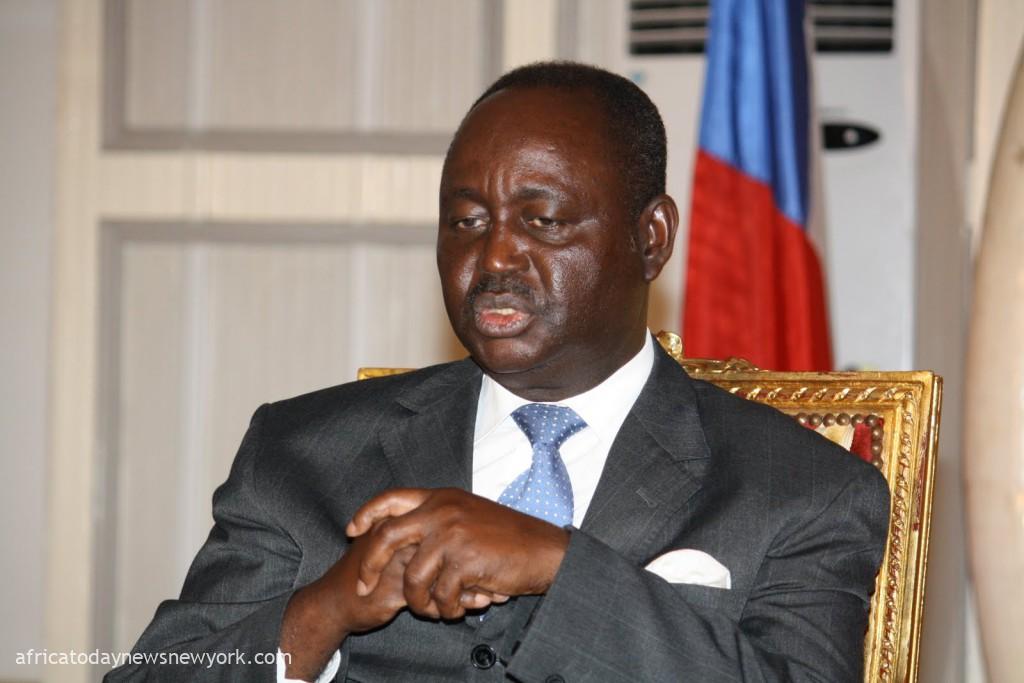Ex-president Francois Bozize of the Central African Republic, currently at the helm of a rebel alliance, has been handed a lifelong sentence of forced labour on charges of conspiracy, rebellion, and homicide in the persistently tumultuous nation.
Bozize, who assumed control of the CAR in 2003 but was ousted ten years later, received a sentencing in absentia on Thursday, with the ministry sharing the judgment with AFP.
The same sentence in absentia was handed down to 20 co-accused individuals, among them rebel leaders and two of Bozize’s sons.
The appeals court in the capital, Bangui, has also ruled them guilty of undermining internal security and committing “murders.”
There were no specifics about the timeframe or the nature of the crimes provided in the judgment.
At 76 years old, Bozize, who resided in exile in Chad until March and later moved to Guinea-Bissau, serves as the leader of an alliance comprising rebel factions known as the Coalition of Patriots for Change (CPC). This coalition was formed in December 2020 with the objective of unseating Bozize’s successor, Faustin Archange Touadera.
Ali Darassa, who leads the primary militia group within the CPC alliance, was one of the individuals sentenced in Bangui.
CAR, one of the globe’s least affluent nations, has been ensnared in a civil war since 2013, sparked by the ousting of Bozize by the predominantly Muslim armed coalition known as the Seleka.
Read also: Central African Republic’s Army Recovers Territory
To make a bid for power, Bozize organised armed militias known as the anti-Balakas, primarily consisting of Christians.
Although the conflict has waned in intensity since 2018, the country still wrestles with occasional outbreaks of violence and entrenched poverty.
Both sides in the conflict have faced accusations of war crimes and crimes against humanity by the United Nations, following the tragic deaths of thousands of civilians.
France, the former colonial authority, intervened militarily in the chronically unstable country in 2013 to assist in mitigating the civil war that had flared up along sectarian lines.
The intervention and the subsequent presence of UN peacekeepers set the stage for the 2016 elections, which saw Touadera emerge as the winner.
After two years, Touadera turned to fighters from Russia’s Wagner mercenary group to assist in training his armed forces. In 2020, he enlisted additional Russian operatives as rebel groups near the capital.
Last December, France withdrew its remaining troops from the CAR in response to mounting hostility on social media.
Across Africa, Wagner has been accused by human rights groups and other watchdog organisations of committing heinous acts and plundering valuable minerals as a quid pro quo for bolstering fragile regimes.
In defiance of UN sanctions tied to his suspected role in the CAR crisis, former general Bozize initially sought refuge in Uganda.
He made a discreet return to his homeland in 2020, aiming to participate in the presidential elections, and subsequently adopted the position of a rebel leader.
He relocated to Chad towards the end of 2021, as government troops, supported by Russian paramilitary forces, recaptured substantial portions of territory.
While Bozize’s CPC waged a guerrilla war in northern CAR, his presence in Chad became a cause of tension in bilateral relations. The CAR accused Chad of hosting rebel activities on its soil. He departed Chad for Guinea-Bissau in March.

